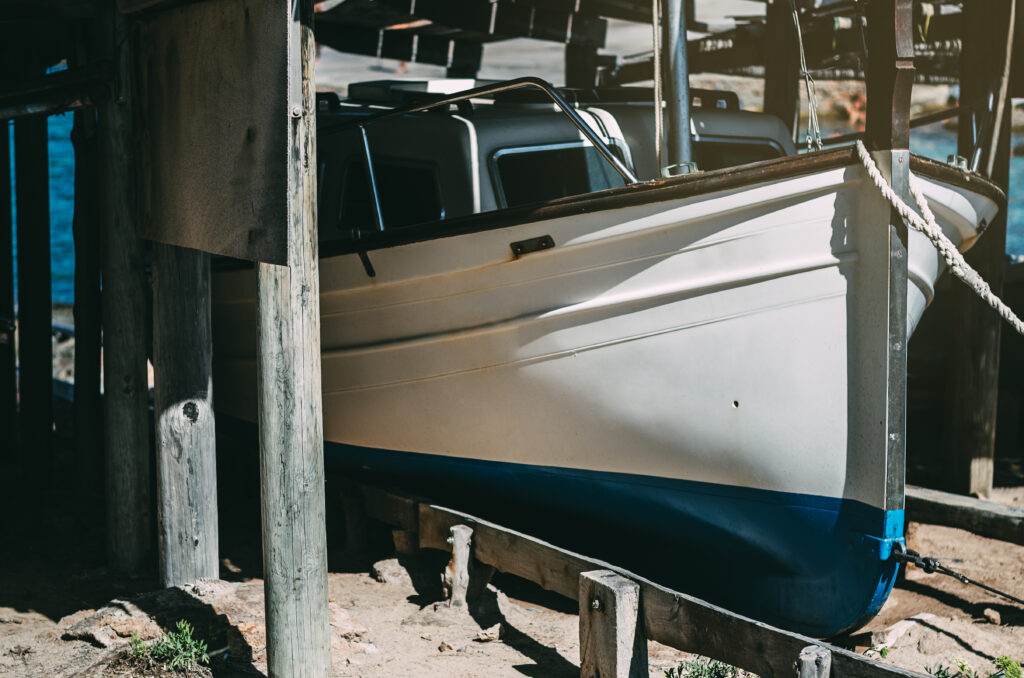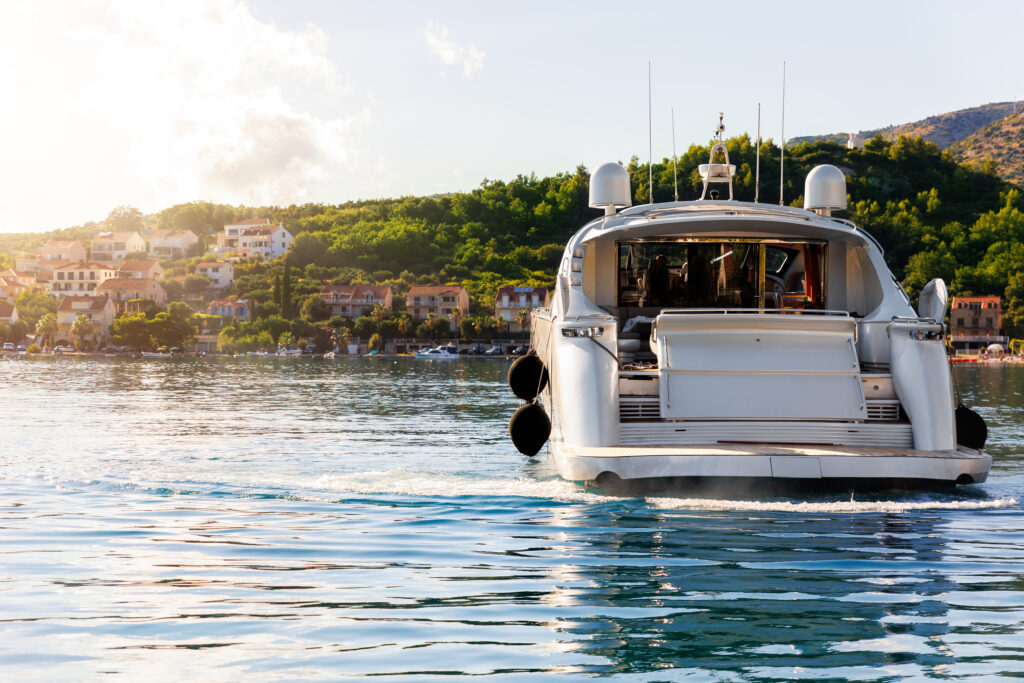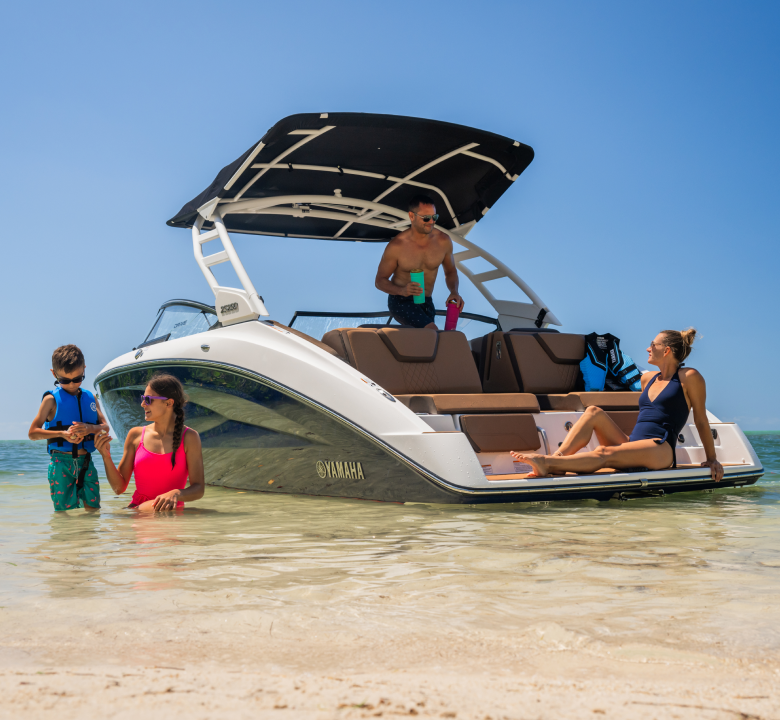In this article, we go over how old of a boat can you finance, covering typical lender age limits, why boat age matters in underwriting, and how specialized marine financing—like what we offer—can help you secure a loan even on older vessels when the circumstances are right.
Buying a boat isn’t always about going brand new. Many buyers look for well‑maintained used boats that offer great value. Financing those boats, however, raises a big question: does age limit your options? Let’s explore how lenders approach boat age and what you can do to find the right loan.

Why Lenders Care About Boat Age
When a lender approves a boat loan, they’re not just considering your financial picture—they’re also assessing the asset itself. A boat is collateral for the loan, and if it’s too old or in poor condition, the lender assumes more risk.
Boats, unlike cars, can have very long service lives if properly maintained. However, some older vessels may lack modern safety features, be harder to insure, or be more prone to costly repairs. That’s why lenders set guidelines on age.
Typical Age Limits for Boat Financing
So, how old of a boat can you finance? Most lenders follow these general guidelines:
- New boats (0–5 years old): Easiest to finance with the widest choice of terms.
- Late-model used boats (6–10 years old): Commonly financed by both banks and marine lenders.
- Older used boats (11–20 years old): Fewer lenders offer loans, but many marine specialists do.
- Boats over 20 years old: Often require special programs, larger down payments, or cash sales.
For example, a traditional bank might not finance a 17‑year‑old fishing boat, but a marine lender familiar with that make and model might approve a loan with a shorter term or higher down payment.

Boat Type Matters Too
Not all boats age the same. A 15‑year‑old pontoon in excellent shape may be easier to finance than a 15‑year‑old high‑performance boat with limited resale market. Lenders consider:
- Material: Fiberglass hulls tend to hold value longer than some aluminum builds.
- Size and brand: Well‑known brands with strong resale markets are easier to finance.
- Usage history: Boats used in saltwater may face more scrutiny than freshwater boats of the same age.
When you work with us, we help you evaluate whether the specific boat you want fits typical lender preferences.
How Surveys and Inspections Affect Older Boats
For boats older than 10–15 years, many lenders require a marine survey—an inspection by a certified surveyor to assess condition, value, and safety. A clean survey can reassure lenders that an older boat is a solid investment.
Surveys typically check:
- Hull integrity and moisture levels
- Engine hours and maintenance records
- Electrical and fuel systems
- Safety equipment and compliance
Providing a current, favorable survey can make financing an older boat much easier.

Down Payment Requirements on Older Boats
Lenders often require a larger down payment on older boats to reduce their exposure. While new boats might need 10% down, an older boat might require 15–25%. This shows your commitment and lowers the loan-to-value ratio.
For example:
- On a 12‑year‑old center console priced at $40,000, you might need $8,000–$10,000 down.
- On a 22‑year‑old trawler priced at $80,000, you might need 25% or more down to qualify.
At Float Finance, we help you understand these numbers before you make an offer so there are no surprises.

Insurance Requirements for Older Boats
Lenders want to ensure their collateral is protected. Older boats may require specialized insurance policies or agreed‑value coverage. It’s wise to get insurance quotes early in the buying process, especially for boats over 15 years old.
We help clients connect with insurers experienced in older boats to make sure coverage meets lender requirements.
How Loan Terms Change With Boat Age
Older boats often come with shorter loan terms:
- A new $100,000 boat might qualify for a 15‑ or 20‑year term.
- A 12‑year‑old boat at the same price might be capped at 10 years.
- A 20‑year‑old boat might be limited to 5 or 7 years.
Shorter terms mean higher monthly payments, so we help buyers run the numbers using our boat loan calculator to see what fits their budget.

Working With Specialized Marine Lenders
Traditional banks often decline loans on boats over 10–15 years old. That’s where marine lenders shine. We work with a network of lenders that understand:
- High‑quality older boats hold their value
- Maintenance records matter more than model year alone
- A strong down payment and insurance plan reduce risk
This specialization allows us to help buyers secure loans even on unique or older boats that mainstream lenders might overlook.

Real-World Examples of Older Boat Financing
Example 1: A Classic Cruiser
A buyer fell in love with a 1998 28‑foot cruiser with updated electronics and excellent maintenance records. A traditional bank declined the loan due to age. We arranged a marine survey, collected the maintenance history, and secured a 10‑year term through a lender that specializes in older boats. The buyer was thrilled to finance their dream boat affordably.
Example 2: A Vintage Fishing Vessel
Another client found a 2001 offshore fishing boat priced at $55,000. Despite being over 20 years old, it had a rebuilt engine and pristine hull. We worked with a lender that accepted a 20% down payment and verified insurance, resulting in a 7‑year loan with competitive terms.
These cases show that age doesn’t have to be a dealbreaker if you work with the right financing partner.
Tips for Financing an Older Boat
To improve your chances:
- Gather maintenance records from the seller.
- Be prepared to pay for a marine survey.
- Save a larger down payment (15–25%).
- Get insurance quotes early.
- Work with a marine financing expert familiar with older vessels.
Following these steps will help you avoid surprises and speed up approval.

Refinancing Older Boats
If you already own an older boat outright, refinancing might be an option to free up cash or fund upgrades. While some lenders have limits on refinancing older boats, specialized lenders can still help depending on the boat’s condition and market value.
Conclusion
So, how old of a boat can you finance? While many banks prefer boats less than 10–15 years old, marine‑focused lenders can finance vessels up to 20 years old—and sometimes even older—if they’re well maintained, properly documented, and insured.
At Float Finance, we work with buyers to navigate these age limits, arrange surveys, and find lenders who understand the true value of your boat. Whether you’re eyeing a late‑model fishing boat or a classic cruiser, we can help you secure financing that fits your budget and your plans on the water.
